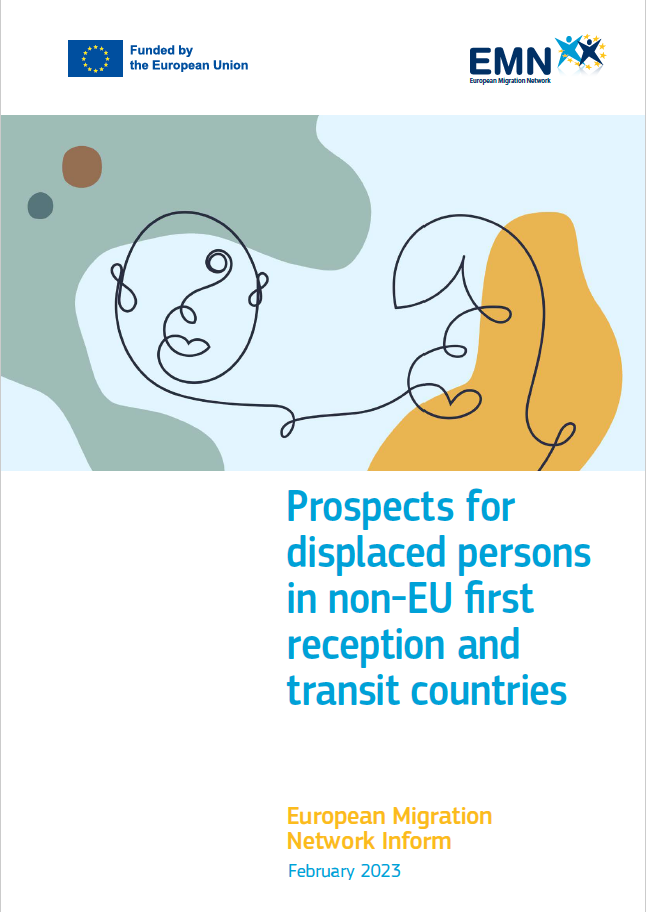More than half of responding EMN Member Countries have strategies and policies in place to enhance the prospects of displaced persons in non-EU countries of first reception and transit. The objectives are manifold, ranging from the promotion of dignity, self-reliance and human rights of forcibly displaced persons and host communities to addressing the root causes of irregular migration and forced displacement, as well as preventing onward migration.
This inform explores which national strategies have been implemented in the EMN Member Countries to enhance the prospects for displaced persons in non-EU first reception and transit countries, and how these strategies have been integrated within existing EU and international frameworks and agreements such as the Global Compact on Refugees (GCR), the Sustainable Development Goals (SDGs), and the EU’s New Pact on Migration and Asylum. It also attempts to provide examples of successful programmes and initiatives aiming to enhance the prospects of those populations, identifying good practices and exploring opportunities to further strengthen and foster (cross-border) partnerships and cooperation.
Implementing these strategies and initiatives can be challenging at times, especially when confronted with difficult socio-economic conditions in non-EU first reception and transit countries, legal restrictions, and conflicts of interest between host governments and donors, all of which can be further aggravated by the impact of the Covid-19 pandemic.
However, several success factors were identified that contributed to the effectiveness of approaches to enhance the prospects of displaced populations. The most often reported included adopting a humanitarian-development-peace nexus approach, providing multi-annual, flexible and predictable funding and including host populations in the scope of the initiatives. A few EMN Member Countries also identified specific ways to further strengthen cooperation and partnerships to enhance the prospects of displaced persons, including, for example, the establishment of regional dialogues and networks to create opportunities for peer-to-peer exchange, bring beneficiary organisations together to share information and present how they use funds to better align donor interests with those of host countries.


